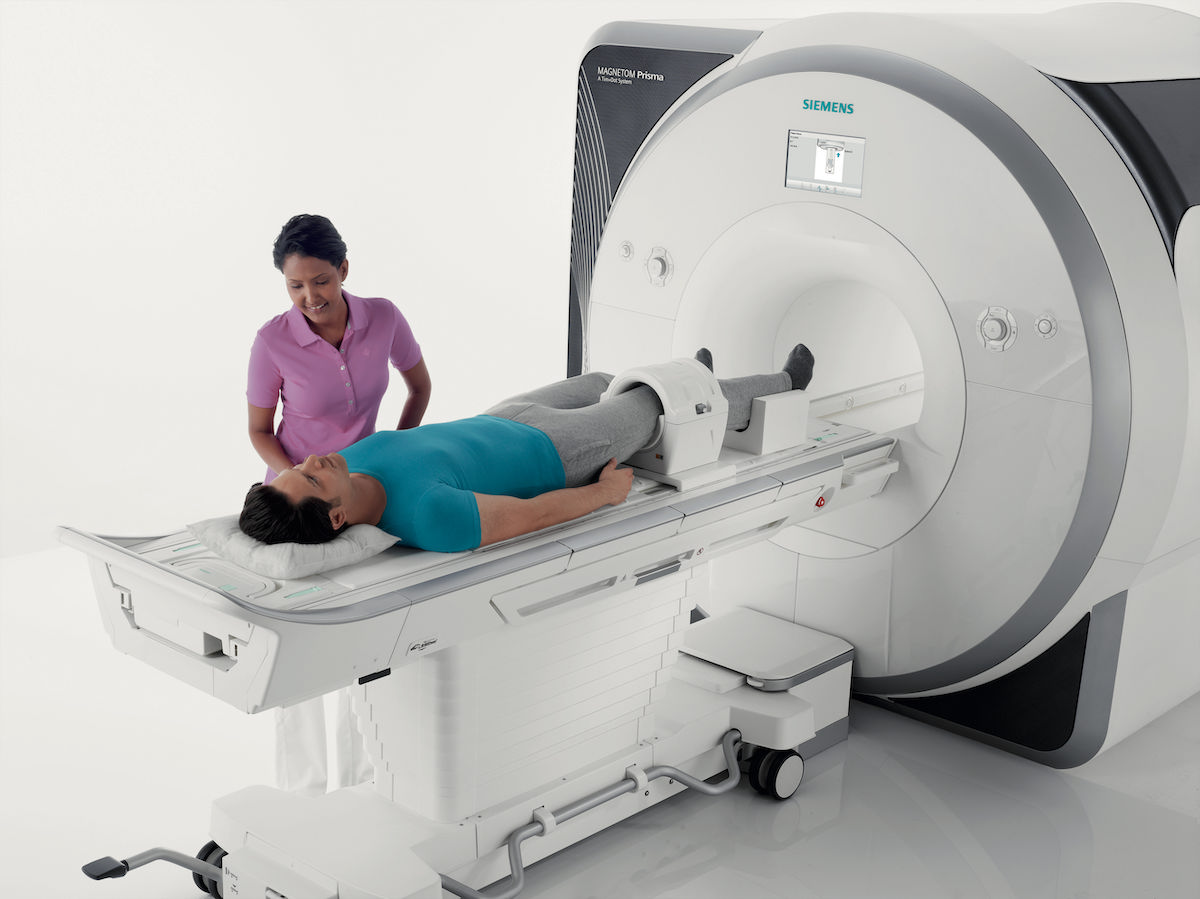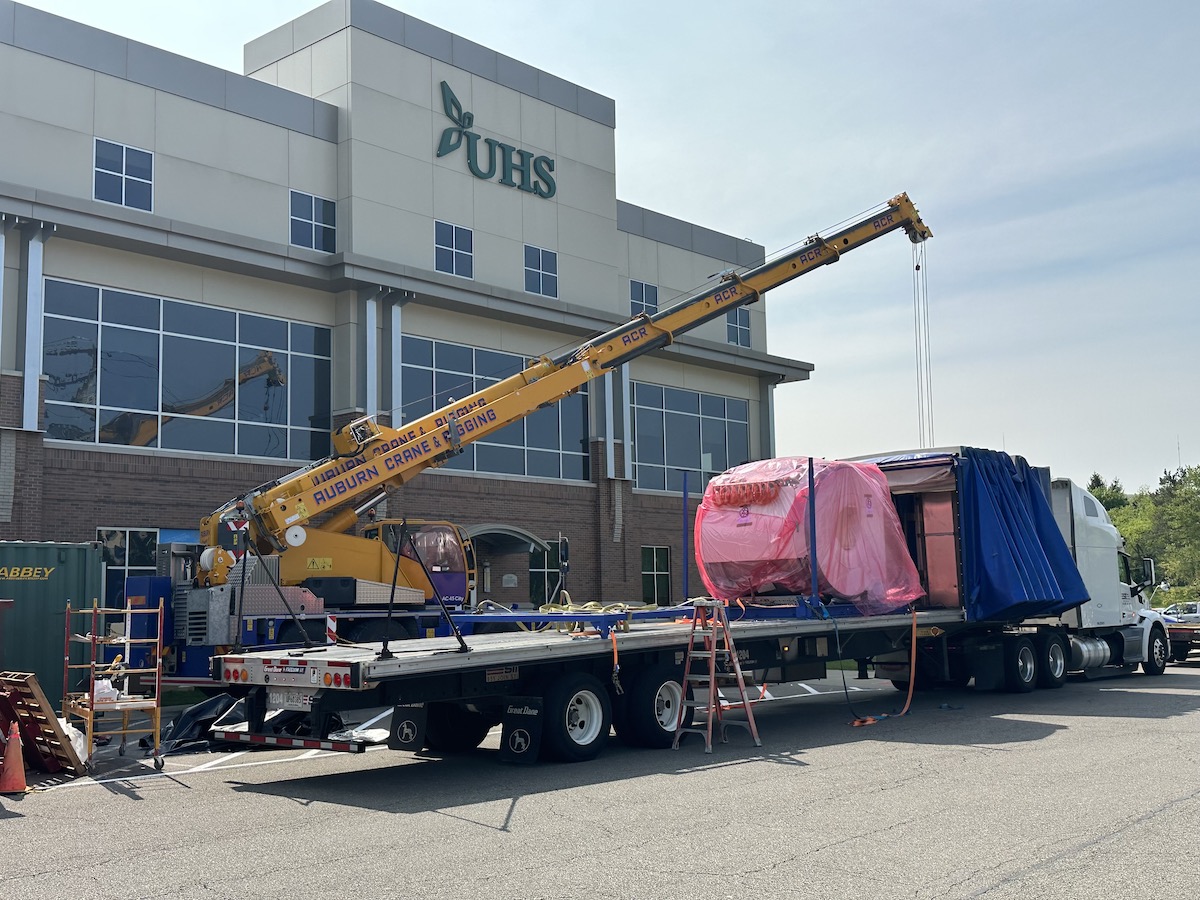Binghamton University and UHS partner on $2.6 million MRI scanner
New technology establishes Broome County as home to one of the most advanced magnetic resonance imaging (MRI) centers in the region

United Health Services (UHS) and Binghamton University have entered a partnership to bring a state-of-the art magnetic resonance imaging (MRI) scanner to the Southern Tier of New York. The $2.6 million MRI, a Siemens Magnetom Prisma 3 Tesla scanner, will be located at UHS’ Vestal campus and will make Broome County home to one of the most advanced MRI technologies in the region. The scanner will be available to serve the community and conduct path-breaking research as of this summer.
This venture brings Binghamton University faculty and other partners together to conduct academic and clinical research in areas such as biomedical research – particularly neurosciences – and computer science. Research applications include innovative studies of the human brain, which will deepen a scientific understanding of brain disorders, from Alzheimer’s disease to autism.
It also enables UHS to offer cutting-edge clinical diagnostics for its patients. Clinical applications of the scanner include diagnosis of brain disease and disorders, cardiovascular disease, and orthopedic injuries. It will also offer the capability for patients to receive cardiac MRIs locally in Binghamton, a service that is currently only available in large cities such as Syracuse, Rochester and New York City.
“As the two largest employers in the region, UHS and Binghamton University have a history of working together to serve and invest in the community,” said John M. Carrigg, president and chief executive officer of UHS. “This partnership between UHS and BU, and specifically this scanner will open new avenues of research for faculty and provide UHS physicians and patients with the latest advanced diagnostic imaging technology available in the industry.”
MRI-centered research is a cross-disciplinary pursuit that blends expertise in physics, anatomy, physiology, neuroscience and advanced data processing sciences. The center will enable faculty to expand on cross-disciplinary collaborations and work with UHS physicians to address new research questions that MRI technology can answer.
“This public-private partnership will benefit the community by providing the most advanced imaging technology in the region,” said Binghamton University President Harvey Stenger. “This project is in alignment with the research strategy outlined by New York Gov. Kathy Hochul in her latest State of the State message, and will enhance our ability to attract external funding, as well as build research partnerships with industry and other universities.”
Binghamton University’s Brain and Body Imaging Research Center was established in 2021 in partnership with UHS and is led by Binghamton Professor of Psychology J. David Jentsch.
”About 50 years ago, MRI was invented by SUNY researchers. Today, we’re bringing a 21st-century version of the technology to the Southern Tier. It will have a transformative impact on our ability to make scientific discoveries that advance human health and to offer the most sophisticated training opportunities to Binghamton students.”
The center will make both organizations more competitive in attracting and retaining research-active faculty and physicians, and represents a new avenue to kindle collaborations between Binghamton faculty and UHS physicians working on research projects that advance the understanding of human health.
For more information, visit nyuhs.org and binghamton.edu/centers/imaging.


